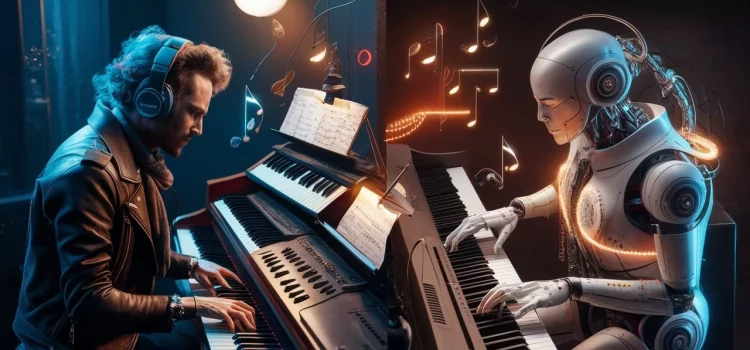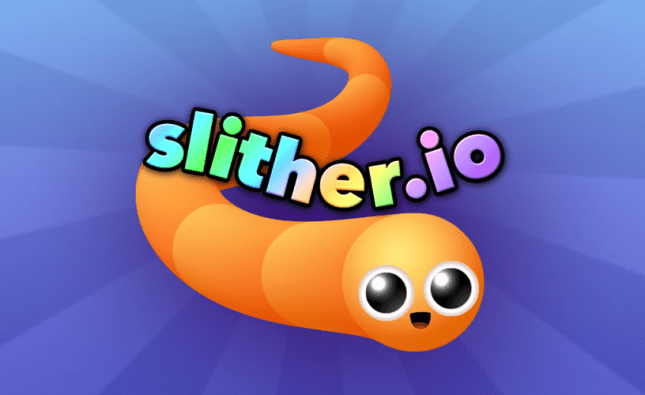
Introduction
Music licensing has long been a critical component of the music industry, ensuring that artists, songwriters, and producers are fairly compensated for the use of their work. With the rapid growth of artificial intelligence (AI), however, the landscape of music licensing is undergoing transformative changes. As AI tools continue to evolve, they are reshaping how music is created, distributed, and licensed. This article explores the future of music licensing in an AI-driven world, focusing on how the technology impacts the music industry, the challenges that arise, and potential solutions.
The Rise of AI in Music Licenses
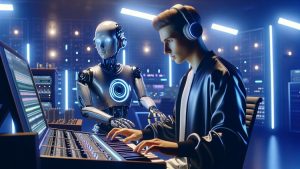
The rise of AI in music licensing is changing how the industry operates. With technology improving rapidly, AI is now able to assist in creating, distributing, and licensing music. This new technology helps musicians, producers, and companies work together more efficiently. As AI continues to grow, it becomes more important to understand how it affects music licensing and the people involved in the industry.
How AI Can Help Songwriters
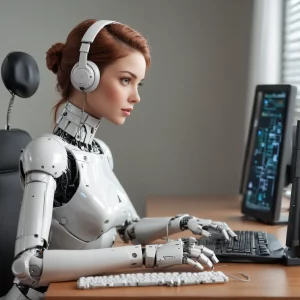
AI can be a helpful partner for songwriters. For example, AI tools can suggest melodies, lyrics, and even chord progressions. This can spark new ideas and help songwriters overcome creative blocks. However, when an AI tool contributes to a song, it can be difficult to figure out how to credit or pay the people involved. Establishing clear guidelines for how to license music created with AI is essential to ensuring that everyone gets a fair share of the profits.
Benefits of AI in Music Licensing

AI offers many benefits for music licensing. First, it can speed up the process of finding and licensing music. AI tools can quickly analyze a large number of songs and match them with projects, making it easier for content creators to find the right music. Additionally, AI can help keep track of how songs are used, ensuring that artists receive the right payments. These benefits can help make the music licensing process smoother and more efficient for everyone involved.
The Role of AI in Music Creation
AI is playing an important role in music creation as well. Many artists use AI tools to help them write songs or generate new ideas. This technology can suggest melodies, lyrics, and sounds, which can inspire musicians and spark their creativity. By using AI as a partner, artists can explore new styles and create music that they might not have thought of on their own. This collaboration between humans and AI can lead to exciting new music.
AI and Its Impact on Music Licensing
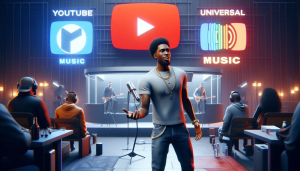
The integration of AI in music licensing opens new avenues for both creators and distributors. AI tools can analyze vast amounts of music data to match songs with licensing opportunities more efficiently than ever before. These tools can also monitor how music is used, ensuring that artists receive proper compensation. However, AI-generated music also creates unique licensing issues, as it is unclear how copyrights apply to music created by non-human sources.
1. AI Music Generation: A Licensing Challenge
With AI, music generation has become more accessible, and AI can now produce complex compositions without human intervention. This raises the question: Who owns AI-generated music? Traditional copyright laws generally apply to works created by humans, and AI-generated compositions may not qualify for copyright protection under existing laws. This uncertainty complicates music licensing, as there is no clear way to establish ownership rights or determine licensing terms.
2. Opportunities for Licensing Efficiency
AI tools are transforming music licensing by automating repetitive tasks and making it easier to manage licensing agreements. By analyzing patterns in music consumption, AI can help match songs to projects in advertising, film, or streaming faster. This helps reduce costs for licensing companies and streamlines the licensing process for both rights holders and clients.
Challenges in Regulating AI-Driven Music Licenses
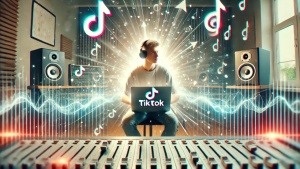
While AI promises efficiency, it also brings regulatory challenges. The current legal framework struggles to keep up with the complexities introduced by AI. There is a lack of consensus on how AI-generated music should be licensed and regulated, creating ambiguity that affects artists, labels, and distributors alike.
1. Copyright Laws and AI Music
Current copyright laws do not clearly define who owns the rights to AI-generated music. Since AI tools can generate compositions autonomously, it’s unclear whether the developer of the AI tool, the user, or the AI itself holds copyright over the music created. This lack of legal clarity may discourage investment in AI music production, as potential licensing disputes remain unresolved.
2. Fair Compensation for Human Artists
One significant concern is ensuring fair compensation for human artists. With AI-generated music that may replace human compositions in commercial projects, artists may lose opportunities for licensing their work. Some argue that a licensing system should be established where revenues from AI-generated music go toward supporting human artists affected by this technology.
Proposed Solutions for the Future of AI-Driven Music Licenses
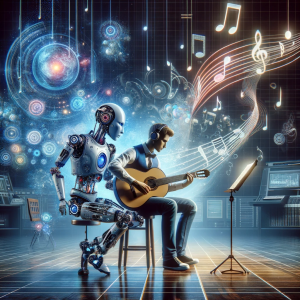
To address the challenges posed by AI in music licensing, industry experts suggest several solutions. These include updated copyright laws, AI transparency measures, and the creation of licensing models that support both AI-generated and human-created music.
1. Redefining Copyright for AI
Legislators may need to create new copyright laws that specifically address AI-generated works. This could involve establishing ownership rights for AI-created compositions and defining how these rights apply in the context of music licensing. By providing clear guidelines, the music industry could better accommodate the rapid growth of AI-generated content.
2. Transparent AI Usage
Transparency in AI usage is also crucial. Licensing agencies and technology providers could establish standards for labeling AI-generated content, allowing consumers and licensing clients to make informed decisions. This transparency could also extend to compensation models, where projects using AI-generated music contribute financially to a fund supporting human creators.
Collaboration Between Artists and AI

The future of music will likely include more collaboration between artists and AI. Musicians can use AI to explore new sounds while still bringing their unique perspective to the table. For example, an artist might use AI to create a backing track and then add their own vocals or instruments to complete the song. This type of partnership can lead to innovative music that blends human creativity with cutting-edge technology.
The Future of Music Licensing with AI
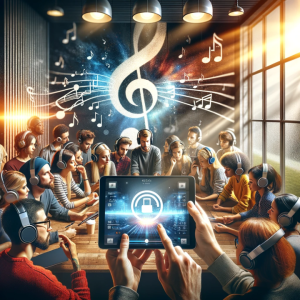
Looking ahead, the future of music licensing in the age of AI holds a lot of potential. As technology continues to evolve, the industry will need to adapt to new ways of working. This includes updating laws to clarify ownership rights and creating fair compensation models for artists. By embracing AI while still valuing human creativity, the music industry can find a balance that benefits everyone. The future is bright for music licensing, and with thoughtful approaches, AI can enhance the experience for both creators and listeners.
Comparative Analysis of Traditional vs. AI-Driven Music Licensing
| Aspect | Traditional Music Licensing | AI-Driven Music License |
|---|---|---|
| Ownership | Typically held by human artists | Unclear; may involve developers or users |
| Copyright Laws | Well-established | Evolving, with unresolved legal gaps |
| Licensing Speed | Slower due to manual processes | Faster due to automation |
| Cost | Generally higher due to labor-intensive processes | Potentially lower, but varies |
| Fair Compensation | More predictable | Requires new models to support artists |
| Regulatory Clarity | Established framework | Regulatory ambiguity |
Analysis Table of Key Points
| Key Aspect | Current Challenges | Potential Solutions |
|---|---|---|
| Ownership and Copyright | Undefined ownership for AI-created music | Introduce AI-specific copyright laws |
| Compensation for Artists | AI threatens human licensing opportunities | Create a revenue-sharing model |
| Licensing Efficiency | Manual processes slow the workflow | Automate licensing through AI |
| Transparency | Lack of clarity on AI vs. human work | Implement AI content labeling standards |
| Regulatory Framework | Existing laws don’t cover AI music | Develop a clear regulatory framework |
Conclusion
The future of music licensing in the age of AI presents both opportunities and challenges. AI has the potential to revolutionize music licensing by increasing efficiency, lowering costs, and broadening access to music. However, as AI-generated music becomes more common, it raises complex legal and ethical questions that the industry must address. By developing new regulations and transparent practices, the music industry can adapt to these changes, ensuring that both AI and human creators benefit from licensing opportunities.
As AI continues to advance, the importance of proactive regulation and innovative licensing solutions will only grow. Ensuring fair compensation for artists and clear ownership for AI-generated works will be key to a balanced future for music licensing.








